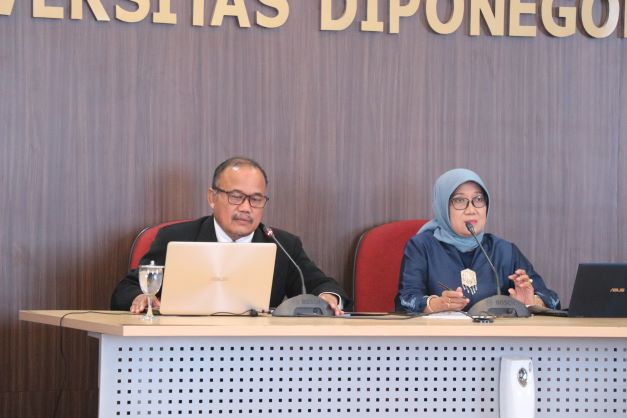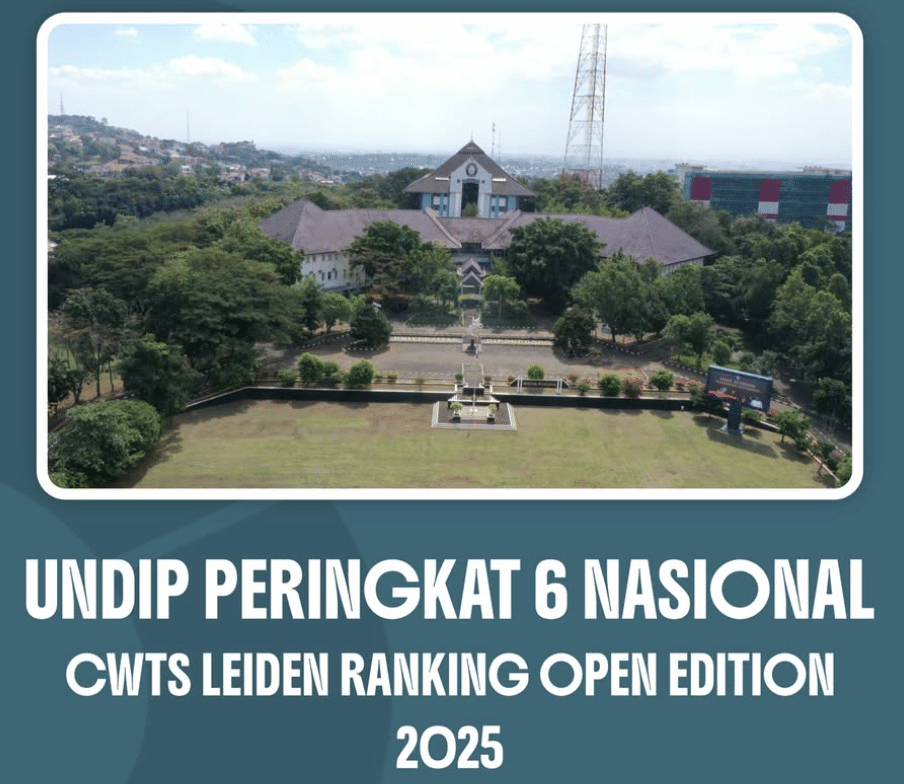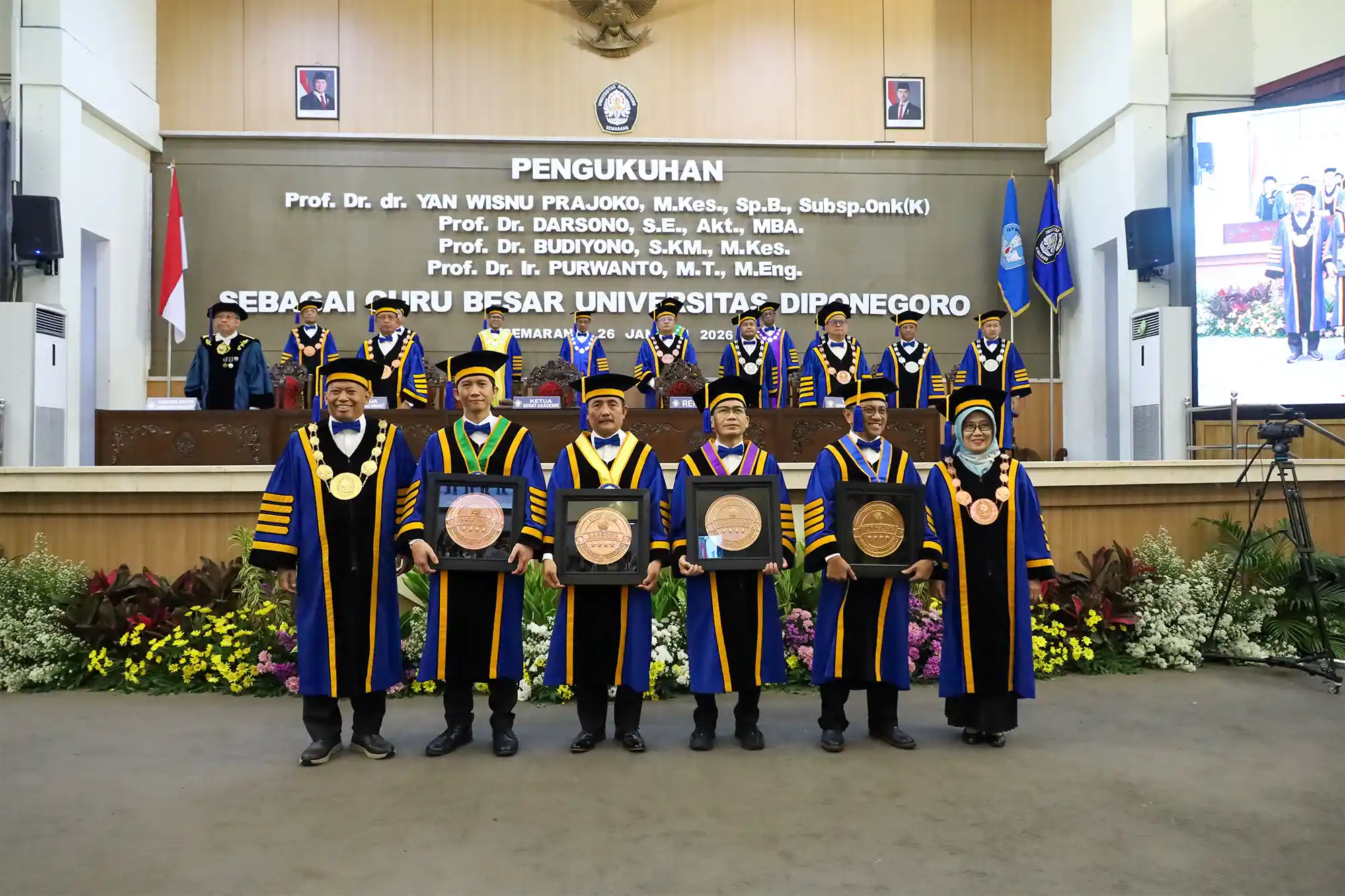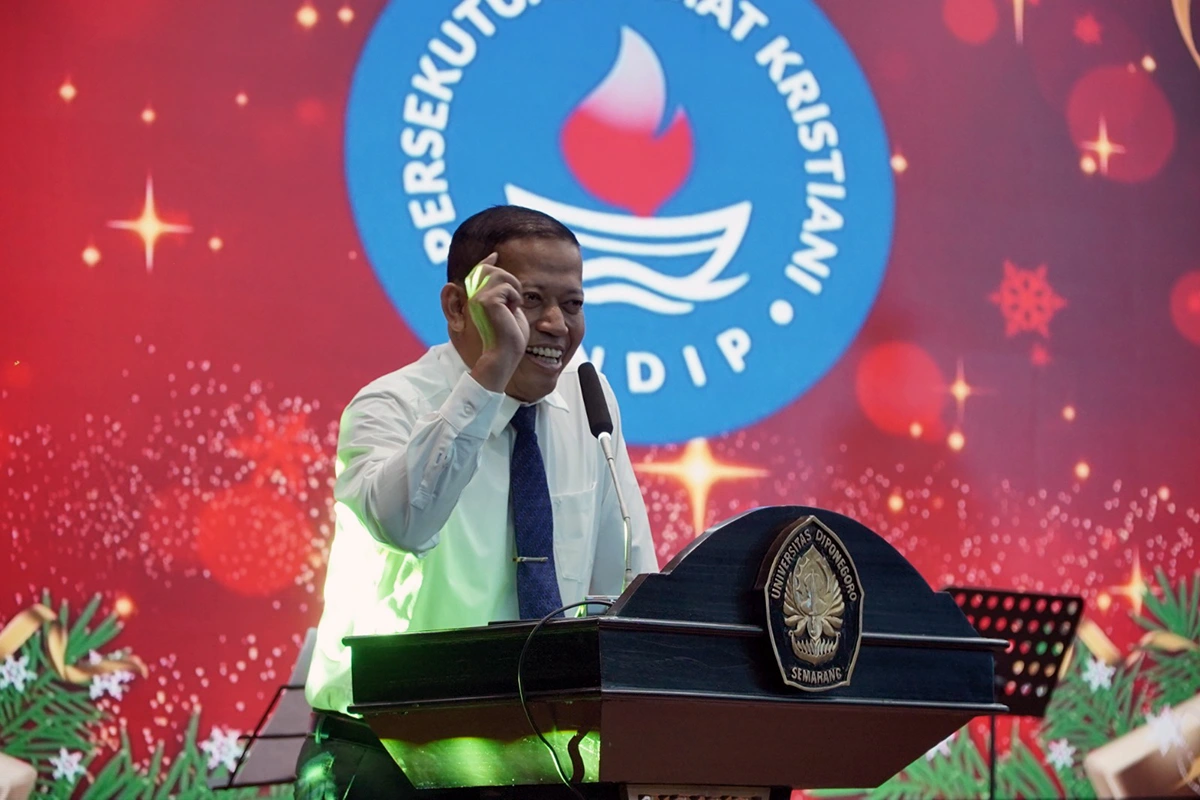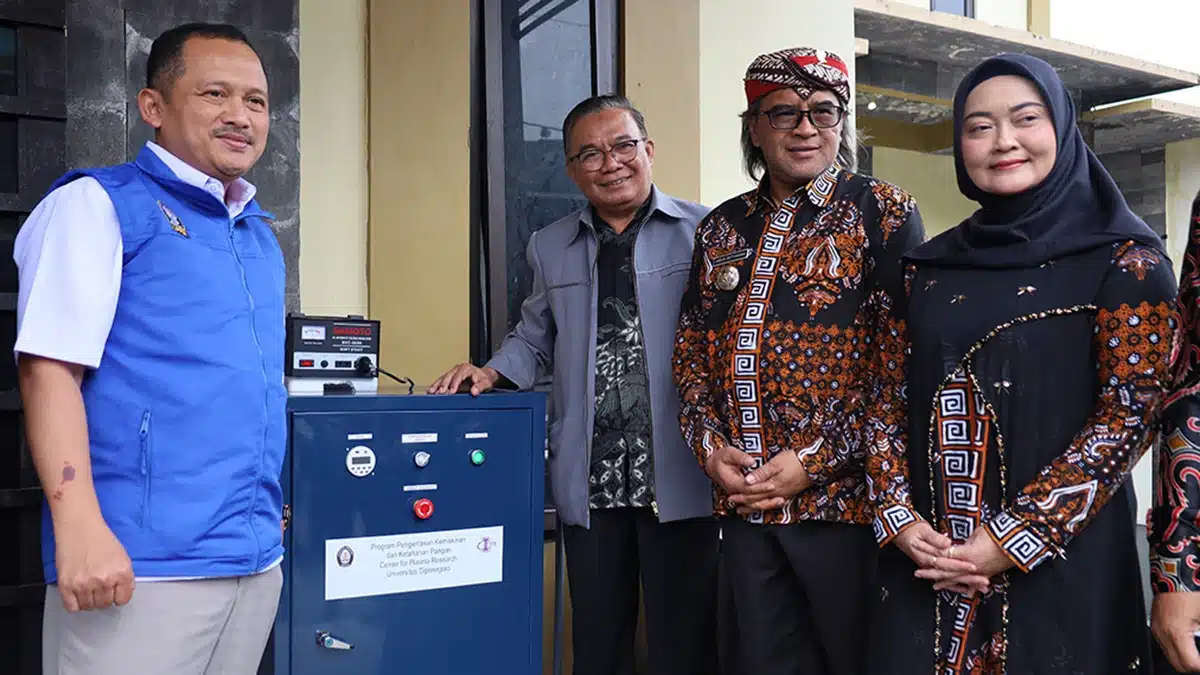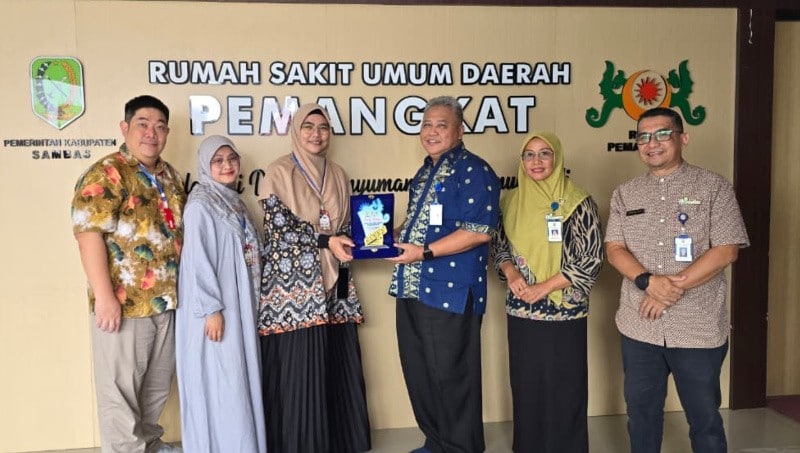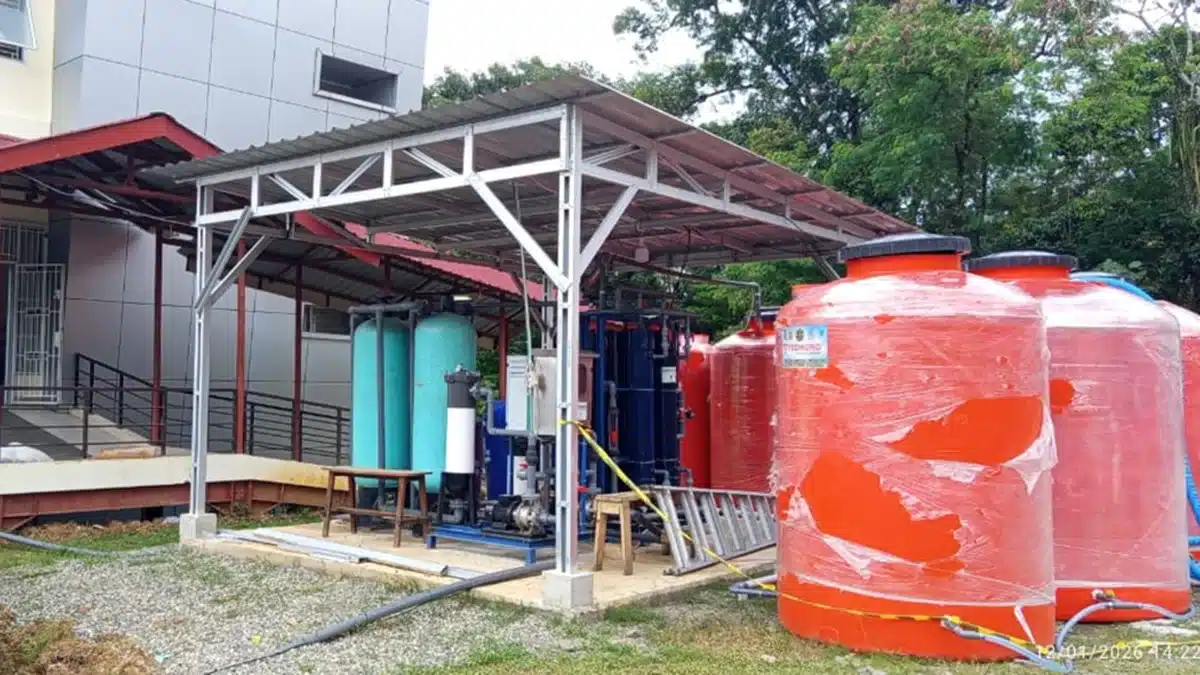Diponegoro University – Semarang. Two prospective professors of the Faculty of Fisheries and Marine Sciences, Diponegoro University, Dr. Ir. Munasik, M.Sc and Dr. Ir. Sarjito, M.App.Sc presented their scientific papers in the Plenary Session of the Presentation of Scientific Papers for Prospective Professors at Diponegoro University which was held by the Undip Board of Professors, Tuesday (28/2).
In his presentation, Dr. Munasik raised the title “Smart Ecological Design for Restoration of Indonesian Coral Reefs” which discussed artificial reefs as one of the scientific efforts to restore coral reefs and protect coastal areas from ecosystem abrasion and extinction. For more than three decades, various designs have been created and each has its advantages and disadvantages. Reef restoration technology in the form of smart ecological design, an ecological approach to coral reef restoration has been devised which aims to maximize coral survival and growth.
“The pattern of reproduction and recruitment of pioneer corals in the natural (donor) coral reef environment will determine the success of coral reef restoration. Marginal coastal waters with hard coral communities that have brooding reproduction methods with monthly reproductive seasons will increase coral recruitment on artificial substrates. Meanwhile, the spawner pioneer coral, Acropora branching apart from reproducing sexually seasonally, has a low recruitment ability and has the potential to reproduce through fragmentation. The reproductive strategy and recruitment of pioneer corals can be used to engineer coral reef restoration technology in the aquatic environment,” he said.
The next presentation was a scientific paper entitled “Management of Fish Diseases in an Environmentally Friendly Manner towards Sustainable Aquaculture” by Dr. Sarjito explained that there were reports of mass mortality in aquaculture organisms, including crabs, crustaceans, shrimp and economically important fish such as grouper, catfish and tilapia, carp and koi. Efforts to deal with diseased fish generally still use antibiotics and chemotherapeutic agents. Even though the use of antibiotics for a long time and in the wrong amount can lead to resistance to pathogenic bacteria and produce residues in aquaculture products as well as the emergence of antimicrobial resistance (AMR) in aquatic environments. Therefore, to avoid the negative effects of the use of antibiotics in aquaculture activities, alternative treatments using environmentally friendly natural ingredients are needed.
“Conventional and biomolecular method of disease diagnosis is one of the keys to success in efforts to treat fish diseases. Agents that cause bacterial disease in freshwater aquaculture organisms are genus Aeromonas and Pseudomonas, while in brackish and marine water is genus Vibrio. Herbal plant extracts and associated bacteria can be used to treat diseases of aquaculture organisms in an environmentally friendly manner as antibacterial and immunostimulant,”explained Dr. Sarjito. (Lin – Public Relations)
